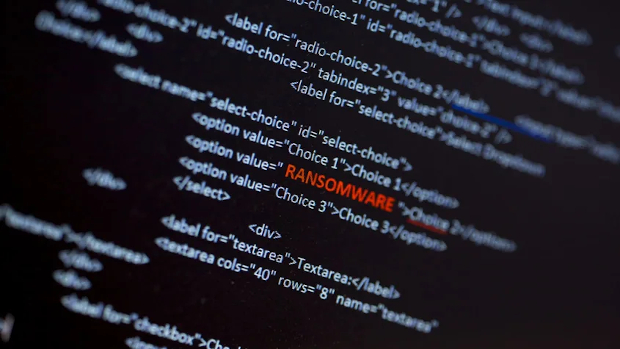
Simple Active Directory tweak helps block BlackMatter ransomware attacks
Security researchers have discovered a flaw in the logic driving the BlackMatter ransomware family that allows businesses to stop the program from encrypting remote shared folders on an organisation’s network.
The findings mean businesses are able to deploy a relatively simple mitigation to protect themselves against a key attack vector in one of the most successful ransomware strains of the past few years.
Despite the ransomware family being highly sophisticated and deploying many anti-debugging techniques, the mitigation can help prevent BlackMatter from searching for other computers in the active directory (AD), according to researchers at Illusive.
By creating a ‘dummy’ computer account in the AD, and setting the ‘dNSHostName’ attribute to “not set”, BlackMatter will stop searching the AD for other computers to encrypt once it stumbles upon the fake account.
Researchers said BlackMatter first attempts to enumerate all computer accounts in the AD, scanning all accounts alphabetically. It then retrieves the attributes for each computer account before enumerating shares for each computer and encrypting each available share, except for ADMIN$ and C$.
This means by naming a user account ‘aaa-comp’, for example, and disabling the dNSHostName attribute, system administrators can have that ‘dummy’ account appear first in the alphabetically organised AD. If BlackMatter started scanning for computers, it would scan aaa-comp first and would stop looking for other computers to encrypt in the AD.
The result would lead to the infection of that single computer account and the machine would become encrypted, but it would prevent BlackMatter from encrypting remote file shares. This dummy ‘aaa-comp’ account would effectively act like a honeypot, preventing a severe security incident.
The researchers said stopping the search and encryption of remote shared folders is just one attack method BlackMatter uses to inflict damage on victims, and that the mitigation isn’t a silver bullet. Other methods, such as local file encryption and mapped drive encryption, are all still viable to BlackMatter, even with the mitigation in place.
It would be “unusual” to configure a computer account without a dNSHostName set, Shahar Zelig, security researcher at Illusive, told IT Pro. Computers normally have the dNSHostName attribute when joining the AD.
Asked why BlackMatter stops searching when it encounters such an account, Zelig said: “we cannot be certain about the reason, but having a computer account lacking the dNSHostName attribute is not something that appears naturally in an Active Directory environment, so it seems likely that the BlackMatter group considered it as an edge-case that they should not handle.”
Preventing BlackMatter from encrypting remotely accessible folders can lower the amount of damage the attack can achieve. The mitigation may not prevent encryption of the computers on which it’s executed, but can help protect public folders containing business-critical data.
“This finding is significant since encrypting remote shared folders might cause huge [disruption] to an organisation, whether this is a shared folder on an employee’s computer or a file server that serves the entire organisation with important data,” said Zelig. “In a scenario where BlackMatter is distributed to only a part of the network, remote share encryption is significant, since it can affect accessible shares even though the ransomware itself was not executed on the target device.”
Once it gains access to a machine, BlackMatter attempts to retrieve all computers from the AD, but it only searches the built-in ‘Computers’ container and not objects found in other organisational units (OUs). Once it identifies all computers in the AD, it uses lightweight directory access protocol (LDAP) requests to retrieve attributes of those computers.
BlackMatter uses three standard API functions to enumerate computers in the AD and store them for further use: ADsOpenObject, AdsBuildEnumerator, ADsEnumerateNext.
The latter of the three is called for each iteration of the loop and the loop breaks if either ADsEnumerateNext fails, no elements are returned by ADsEnumerateNext, or if it’s unable to get the dNSHostName attribute. The loop is broken if dNSHostName is not set.
After computers have been enumerated, BlackMatter then uses the NetShareEnum function to map what shares each computer has, which creates a NetShareEnumAll request over remote procedure call (RPC). BlackMatter will then attempt to access the shares via server message block (SMB), ignoring C$ and ADMIN$, and ignoring types STYPE_DISKTREE and STYPE_SPECIAL, before encrypting the files.
BlackMatter background
BlackMatter is a family of ransomware that has claimed many high-profile victims in the past 12 months, including the massively disruptive attack on Colonial Pipeline.
Iowa and Minnesota-based farms were also successfully targeted by ransomware operators using BlackMatter, which led CISA, FBI, and NSA to publish a joint advisory warning US businesses of the threat it faced. The US government later offered a $10 million reward to anyone who could aid the investigation into those behind the attack on Colonial Pipeline.
Despite the sophisticated nature of BlackMatter and how devastating it has proven to be as a ransomware strain, Illusive’s findings don’t mark the first time a cyber security outfit has found flaws in its code.
Following an investigation of BlackMatter in October 2021, researchers at Emisoft found that an encryption flaw used by the ransomware could be exploited so that victims wouldn’t have to pay the ransom in order to restore access to their files. The company claimed the finding has helped companies save millions in ransom payments.
Ⓒ Future Publishing





Subscribers 0
Fans 0
Followers 0
Followers